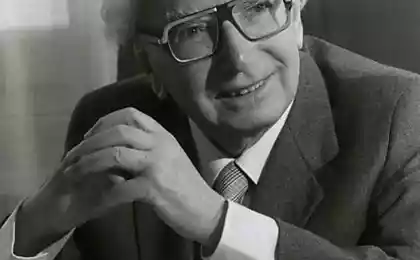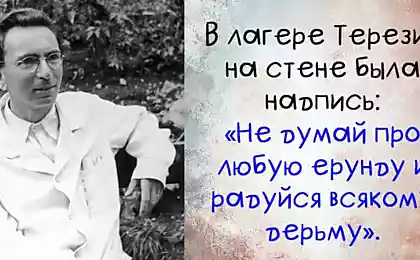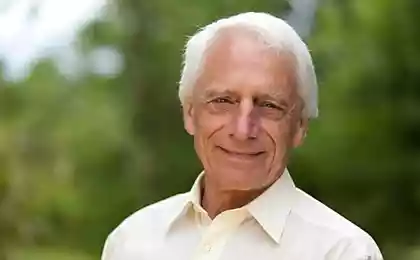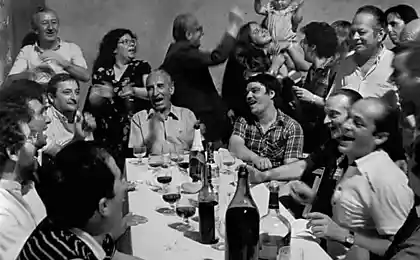727
The classification of the "meaning" of life
Meanings of life can be divided into three groups: vital, social and ideal. You can highlight all 16 of its major meanings of life. The meanings of life provide people with energy to live on and justify the already spent years. Not all the senses of the Supreme, in the sense orientation to a loftier purpose, but they are perfect in the sense that they allow a person to live for them.
Ninety million six hundred sixty five thousand six hundred thirty six
Vital.
1. Life for life (survival). Based on the instinct of self-preservation. One of the most natural ways. Sensemaking the quality here is survival. Meaning fills our lives each day, just the fact that it managed to survive. This sense is particularly relevant in conditions of constant threat of life. V. Frankl noted the presence of similar meaning the inhabitants of the concentration camps, but does not think it was good.
2. Life is for enjoying. Refers to pleasure: food and drinking. The basis of food and drinking instinct, respectively. Sensemaking the quality here — the pleasure derived from eating and drinking.
In life there are two kinds of meaning: a) eating, b) drinking. Despite the fact that from the point of view of psychology such ideals usually are not worthy and often do not considered a sense, but in reality, many people live just for the sake of it. Enjoyment as semantic position is considered by Sigmund Freud, though he attributed mainly to the sexual instinct.
3. Life for the sake of wealth (money). Formed on the basis of the instinct of storing (collecting honey bees, picking up nuts, proteins, etc.). Maslobaza position is wealth, a modern symbol of which is money.
this meaning fits a lot of people (not just rich), because the meaningfulness attached here is not the size of the account and its regular replenishment. Many pensioners in our days find the pleasure that lay pennies in the savings Bank, and its completion causes a pleasant sense of knowingly passing time.
4. Life for fun, entertainment (doing nothing): holidays, parties, the theater and cinema, flirtation, high life, various Hobbies, etc. is Formed on the basis of the instinct of economy of forces, which requires a living being to do nothing as soon as the opportunity arises. Sensemaking position – here the possibility of "good time".
Social meanings.
5. Life for love (on the basis of the sexual instinct). Classic the meaning of life was a Freudian slip. Sensemaking position is — the quantity and quality of sexual love (with its displaced variants).
Can be two varieties of this sense. In the first case, the semantic position is the number of love, that is for a man to be important quantitative multiplication of his friends and favorite people. The meaning of life for many don Juans, and Cleopatr. More common in men than in women.
In the second case similarieties position is the quality of love, this sense is often linked with ideas of family, marital fidelity, and the development of relations in the pair. Most often these species replace each other throughout life: in young people is more focused on increasing the number of love, with age, begins to appreciate the quality.
A characteristic feature of this meaning is a certain anonymity of the partner. What is important is the act of love, not the personality of the partner. If you can't get love with one potential partner, the man who led this sense, I will try to find another (he never keeps faithful departed partner, no matter how strong were the feelings between them).
6. Life for children (based on parental instinct). Sensemaking position – here the extension of the family (children, grandchildren, great-grandchildren). This is one of the most successful ways. More peculiar to women than men. Although D. A. Leontiev considered the most common both in men and women.
7. Life for the nest (home), formed on the basis of the territorial instinct, the private option – the nesting instinct. Building a cozy nest can fill life with meaning, both men and women. The difference stands in relation to the house.
For women, the nest is her home and its interior (repair, Wallpaper, Pollock, buy a wall to the kitchen). For men nest is a house and its surroundings (construction of new extensions and buildings, a garage, car is in the garage). Many people living in this meaning of life, believe that living for the sake of the family; although the family in this case is secondary, the primary house, family members are treated as earners, "bearing house", its builders and protectors.
8. Life for large social groups (home, party, Church, nation, etc.), formed on the basis of herd instinct, the one that knocks the animals in herds and flocks, and can get them for the sake of the flocks to sacrifice their lives. This is the meaning of life actualizarea in moments of danger to a large group; in the absence of such danger, are usually not declared.
9. Life for the sake of friendship (small group personally know you people, non-biological ties). The basis of the same herd instinct, just herd numbers are different. Masloobraznaya position – here, the friendship, the quantity and quality of friendly acts expressed in relation to the members of your small group. This meaning is characteristic of adolescence.
10. Life for a career (power) formed on the basis of the hierarchical instinct, someone that determines the order of levania in the flock of ducks and forcing animals to fight to become leader. Masloobraznaya position here – move up the career (or the power) of the stairs. While moving up, your life is meaningful.
This meaning can be correlated with the proposed V. N. Druzhinin scenario "a life for the sake of". "Outstanding inventors and talented rock musicians, Directors and movie stars... the Main thing – to reach the goal, become a winner. There is a term "winner's mentality". The cult of a man who chose the road of success, achievements, goal, is the result of the development of industrial and postindustrial society".
11. A variation of the previous sense can be "life for professional skill". This sense requires professional perfection of man, without movement on the social ladder, this is especially important in occupations where career growth is limited (work profession, a profession of employees, etc.). A man finds satisfaction in the fact that he makes his case better than all of his colleagues (the mechanic better than others repairing carburetors, a teacher of Russian language achieves universal literacy of their students, etc.). But "professionalism", in order to realize the function of the meaning of life needs its recognition from other people: employees, bosses, clients.
12. Life for a particular person – on the basis of the instinct of following who makes the antelope to run for leader, and geese – with the object that they depicted as a mother. This sense should be distinguished from "life for love", because it does not the sexual instinct, namely the instinct of investigation.
Therefore, the person who is dedicated to life – it's rarely a sexual partner, it can be distinguished a relative (including spouse or child), but it could be some stranger, sometimes the ideal hero of the past. Very often it is already a dead man, in memory of which the life of a follower.
This is a very personal sense, for follow only for this particular person (this person) and not any other, even meeting all the conditions. One of the variants of religious meanings may be this: life, in the name of the founder of this religious doctrine.
Perfect sense.
13. Life for the sake of knowledge (study, science). Formed on the basis of the exploratory instinct. A variation of this sense may be a version of the script of "life as a Preface" (V. N. Druzhinin), when life in this position will perform – learning: knowledge acquisition. "And yet, "life is a preparation for life" makes sense of the time, the person knows what he lives, he is attached to reality, and each new situation as an opportunity to learn something. Hence the thirst for novelty, but not just the frequency of events, and novelty of personal experience".
14. Life for creativity (art).Formed on the basis of the imitative instinct. Creativity is largely the imitation of the external world, i.e., the embodiment of some situations, paintings objectified the author of subjective images. Creative people live in order to create these images (paintings, books, movies). This meaning can be inherent in the script of life "Life for art" (by V. N. Druzhinin).
15. Life for the sake of self-improvement (improvement of abilities in any field, sports). Formed on the basis of a game of instinct, which enables the cubs in the game to develop the strength, skills, abilities; they may need him in the future, but it is still not needed.
The people professing this meaning of life can also be a characteristic of the script of "Life as a Preface"; the only meaningful position there will be a multiplication of possibilities and abilities of the person, his body, his mental and spiritual qualities, not knowledge, as in the case of meaning formed based on the exploratory instinct.
See also: Michael Litvak: How to learn to play the man, or rather his nerves?
Louise hay: don't look for a reason to be unhappy
16. Life for the struggle (freedom, resistance, overcoming obstacles). Formed on the basis of the instinct of freedom. Typical of revolutionaries, romantics and some of the criminal personalities.
Author: Alexander Pavlov
P. S. And remember, only by changing their consumption — together we change the world! ©
Source: lubosvet.org.ua/2015/09/klassifikaciya-smyslov-zhizni/
Ninety million six hundred sixty five thousand six hundred thirty six
Vital.
1. Life for life (survival). Based on the instinct of self-preservation. One of the most natural ways. Sensemaking the quality here is survival. Meaning fills our lives each day, just the fact that it managed to survive. This sense is particularly relevant in conditions of constant threat of life. V. Frankl noted the presence of similar meaning the inhabitants of the concentration camps, but does not think it was good.
2. Life is for enjoying. Refers to pleasure: food and drinking. The basis of food and drinking instinct, respectively. Sensemaking the quality here — the pleasure derived from eating and drinking.
In life there are two kinds of meaning: a) eating, b) drinking. Despite the fact that from the point of view of psychology such ideals usually are not worthy and often do not considered a sense, but in reality, many people live just for the sake of it. Enjoyment as semantic position is considered by Sigmund Freud, though he attributed mainly to the sexual instinct.
3. Life for the sake of wealth (money). Formed on the basis of the instinct of storing (collecting honey bees, picking up nuts, proteins, etc.). Maslobaza position is wealth, a modern symbol of which is money.
this meaning fits a lot of people (not just rich), because the meaningfulness attached here is not the size of the account and its regular replenishment. Many pensioners in our days find the pleasure that lay pennies in the savings Bank, and its completion causes a pleasant sense of knowingly passing time.
4. Life for fun, entertainment (doing nothing): holidays, parties, the theater and cinema, flirtation, high life, various Hobbies, etc. is Formed on the basis of the instinct of economy of forces, which requires a living being to do nothing as soon as the opportunity arises. Sensemaking position – here the possibility of "good time".
Social meanings.
5. Life for love (on the basis of the sexual instinct). Classic the meaning of life was a Freudian slip. Sensemaking position is — the quantity and quality of sexual love (with its displaced variants).
Can be two varieties of this sense. In the first case, the semantic position is the number of love, that is for a man to be important quantitative multiplication of his friends and favorite people. The meaning of life for many don Juans, and Cleopatr. More common in men than in women.
In the second case similarieties position is the quality of love, this sense is often linked with ideas of family, marital fidelity, and the development of relations in the pair. Most often these species replace each other throughout life: in young people is more focused on increasing the number of love, with age, begins to appreciate the quality.
A characteristic feature of this meaning is a certain anonymity of the partner. What is important is the act of love, not the personality of the partner. If you can't get love with one potential partner, the man who led this sense, I will try to find another (he never keeps faithful departed partner, no matter how strong were the feelings between them).
6. Life for children (based on parental instinct). Sensemaking position – here the extension of the family (children, grandchildren, great-grandchildren). This is one of the most successful ways. More peculiar to women than men. Although D. A. Leontiev considered the most common both in men and women.
7. Life for the nest (home), formed on the basis of the territorial instinct, the private option – the nesting instinct. Building a cozy nest can fill life with meaning, both men and women. The difference stands in relation to the house.
For women, the nest is her home and its interior (repair, Wallpaper, Pollock, buy a wall to the kitchen). For men nest is a house and its surroundings (construction of new extensions and buildings, a garage, car is in the garage). Many people living in this meaning of life, believe that living for the sake of the family; although the family in this case is secondary, the primary house, family members are treated as earners, "bearing house", its builders and protectors.
8. Life for large social groups (home, party, Church, nation, etc.), formed on the basis of herd instinct, the one that knocks the animals in herds and flocks, and can get them for the sake of the flocks to sacrifice their lives. This is the meaning of life actualizarea in moments of danger to a large group; in the absence of such danger, are usually not declared.
9. Life for the sake of friendship (small group personally know you people, non-biological ties). The basis of the same herd instinct, just herd numbers are different. Masloobraznaya position – here, the friendship, the quantity and quality of friendly acts expressed in relation to the members of your small group. This meaning is characteristic of adolescence.
10. Life for a career (power) formed on the basis of the hierarchical instinct, someone that determines the order of levania in the flock of ducks and forcing animals to fight to become leader. Masloobraznaya position here – move up the career (or the power) of the stairs. While moving up, your life is meaningful.
This meaning can be correlated with the proposed V. N. Druzhinin scenario "a life for the sake of". "Outstanding inventors and talented rock musicians, Directors and movie stars... the Main thing – to reach the goal, become a winner. There is a term "winner's mentality". The cult of a man who chose the road of success, achievements, goal, is the result of the development of industrial and postindustrial society".
11. A variation of the previous sense can be "life for professional skill". This sense requires professional perfection of man, without movement on the social ladder, this is especially important in occupations where career growth is limited (work profession, a profession of employees, etc.). A man finds satisfaction in the fact that he makes his case better than all of his colleagues (the mechanic better than others repairing carburetors, a teacher of Russian language achieves universal literacy of their students, etc.). But "professionalism", in order to realize the function of the meaning of life needs its recognition from other people: employees, bosses, clients.
12. Life for a particular person – on the basis of the instinct of following who makes the antelope to run for leader, and geese – with the object that they depicted as a mother. This sense should be distinguished from "life for love", because it does not the sexual instinct, namely the instinct of investigation.
Therefore, the person who is dedicated to life – it's rarely a sexual partner, it can be distinguished a relative (including spouse or child), but it could be some stranger, sometimes the ideal hero of the past. Very often it is already a dead man, in memory of which the life of a follower.
This is a very personal sense, for follow only for this particular person (this person) and not any other, even meeting all the conditions. One of the variants of religious meanings may be this: life, in the name of the founder of this religious doctrine.
Perfect sense.
13. Life for the sake of knowledge (study, science). Formed on the basis of the exploratory instinct. A variation of this sense may be a version of the script of "life as a Preface" (V. N. Druzhinin), when life in this position will perform – learning: knowledge acquisition. "And yet, "life is a preparation for life" makes sense of the time, the person knows what he lives, he is attached to reality, and each new situation as an opportunity to learn something. Hence the thirst for novelty, but not just the frequency of events, and novelty of personal experience".
14. Life for creativity (art).Formed on the basis of the imitative instinct. Creativity is largely the imitation of the external world, i.e., the embodiment of some situations, paintings objectified the author of subjective images. Creative people live in order to create these images (paintings, books, movies). This meaning can be inherent in the script of life "Life for art" (by V. N. Druzhinin).
15. Life for the sake of self-improvement (improvement of abilities in any field, sports). Formed on the basis of a game of instinct, which enables the cubs in the game to develop the strength, skills, abilities; they may need him in the future, but it is still not needed.
The people professing this meaning of life can also be a characteristic of the script of "Life as a Preface"; the only meaningful position there will be a multiplication of possibilities and abilities of the person, his body, his mental and spiritual qualities, not knowledge, as in the case of meaning formed based on the exploratory instinct.
See also: Michael Litvak: How to learn to play the man, or rather his nerves?
Louise hay: don't look for a reason to be unhappy
16. Life for the struggle (freedom, resistance, overcoming obstacles). Formed on the basis of the instinct of freedom. Typical of revolutionaries, romantics and some of the criminal personalities.
Author: Alexander Pavlov
P. S. And remember, only by changing their consumption — together we change the world! ©
Source: lubosvet.org.ua/2015/09/klassifikaciya-smyslov-zhizni/























